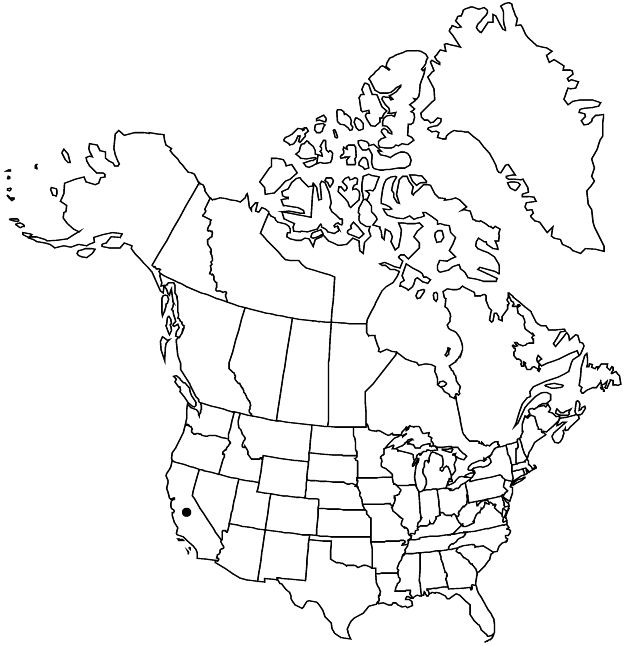Ceanothus confusus
Leafl. W. Bot. 2: 160. 1939.
Shrubs, 0.1–0.6 m, matlike to moundlike. Stems prostrate, spreading, or weakly ascending, often rooting at proximal nodes; branchlets brown to reddish-brown, ± rigid, glabrous or sparsely puberulent. Leaves not fascicled, not crowded, shorter than internodes; petiole 0–2 mm; blade flat to ± cupped, elliptic to ± oblong or obovate, 10–20 × 5–14 mm, base obtuse to cuneate, margins thick or slightly revolute, slightly wavy, sharply dentate to spinose-dentate, teeth 3–9, apex acute or retuse, with an apical tooth, abaxial surface grayish green, strigillose on veins, adaxial surface green, dull, glabrous. Inflorescences axillary, 1.5–3 cm. Flowers: sepals, petals, and nectary blue, lavender, or purple. Capsules 4–6 mm wide, lobed; valves smooth, crested, horns subapical, prominent, erect, intermediate ridges weakly developed. 2n = 24.
Phenology: Flowering Feb–May.
Habitat: Rocky soils apparently derived from serpentine or volcanic substrates, chaparral, oak and pine woodlands, conifer forests.
Elevation: 70–1000 m.
Distribution

Calif.
Discussion
Ceanothus confusus is weakly defined and perhaps best treated as a part of C. divergens (L. Abrams and R. S. Ferris 1923–1960, vol. 3). At least some populations in the Hood Mountains (Napa and Sonoma counties) include plants with the habit and leaf morphology of both species, while other, more uniform populations appear intermediate; it remains to be determined whether this pattern is a product of primary or secondary intergradation.
Selected References
None.
Lower Taxa
"thick" is not a number.